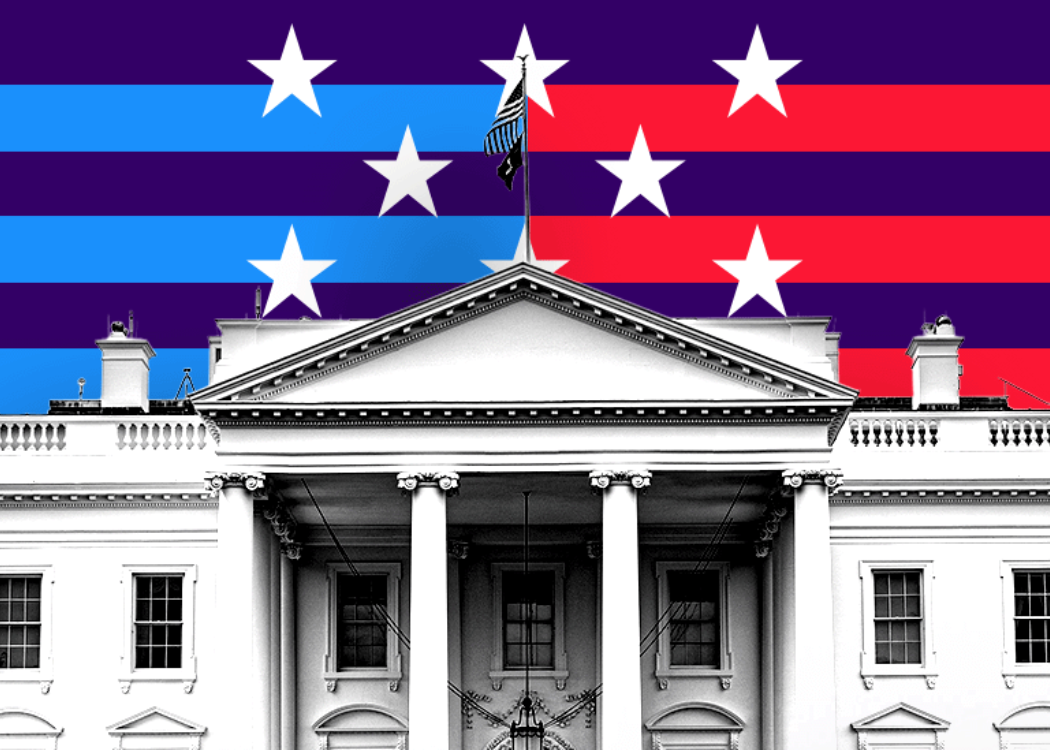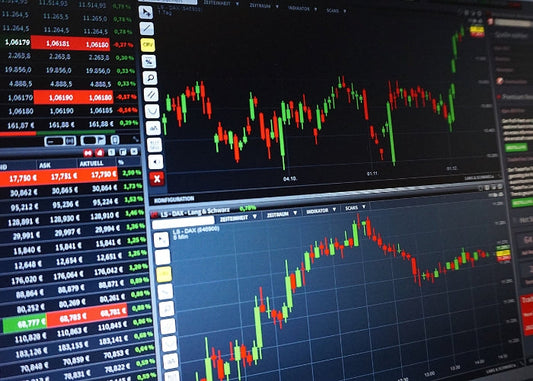How the U.S. Election Impacts FX and Stock Markets: Key Scenarios with Trump and Harris

How the U.S. Election Impacts FX and Stock Markets: Key Scenarios with Trump and Harris
The U.S. presidential election has historically influenced both global markets and foreign exchange (FX) dynamics. As the world’s largest economy, the U.S. significantly affects global risk sentiment, trade policies, fiscal spending, and monetary policy. The market impact depends on candidates’ policy stances, particularly around fiscal policy, trade relations, and regulatory approaches.
In a scenario where a former President like Donald Trump and a high-ranking official like Vice President Kamala Harris are contenders, each brings contrasting perspectives that could shape markets differently. Here’s an in-depth look at how FX and stock markets might respond to these distinct approaches.
- General Election-Related Market Drivers
Key Themes:
- Uncertainty and Volatility: Markets typically experience increased volatility around elections due to policy uncertainty and potential shifts in economic direction. High volatility can lead to mixed risk sentiment, influencing FX and equity markets as investors seek safe havens.
- Safe-Haven Demand: In times of political uncertainty, investors tend to shift toward safe-haven assets, such as the U.S. dollar, Japanese yen, Swiss franc, and gold. This demand can strengthen these assets and affect the value of risk-sensitive currencies like AUD, NZD, and CAD.
- Foreign Exchange Market Impacts: Trump vs. Harris
The U.S. dollar plays a central role in global trade and finance, so its strength or weakness greatly affects FX markets. Here’s how the dollar might respond depending on the policy stances of Trump or Harris:
USD Outlook Based on Policy Differences:
- Trump’s Approach: Known for advocating deregulation and tax cuts, Trump’s policies often strengthen the dollar by supporting growth. However, his history of trade tensions, particularly with China, could create dollar instability, particularly if tariffs are reintroduced.
- Harris’s Approach: Harris may focus on fiscal spending for infrastructure, healthcare, and green energy. Although stimulative, such spending could add to the national debt, potentially weakening the dollar over the long term, especially if inflation expectations rise and impact bond yields.
Impact on Key Currency Pairs:
- EUR/USD: Trump’s approach might strengthen USD, pressuring EUR/USD lower. A Harris victory, with potential fiscal expansion, might weaken USD, pushing EUR/USD higher.
- USD/JPY: The yen, a safe-haven currency, could benefit from Trump’s trade policies if they cause market uncertainty. Harris’s potentially steadier international approach could support USD relative to JPY.
- USD/CAD: Trump’s “America First” policies might weigh on CAD, whereas Harris’s pro-trade stance could support the Canadian dollar.
- USD/CNY: Trump’s stricter stance on China could weigh on the yuan, while Harris may opt for diplomacy, which could strengthen the yuan against the dollar.
- Stock Market Impacts: Key Sectors to Watch
U.S. stock markets are also sensitive to policy direction, especially around regulation, taxation, and international trade. Each candidate’s focus would likely impact specific industries:
Sector-Based Outlook:
- Energy:
- Trump: Known for supporting fossil fuel industries, a Trump victory could boost traditional energy stocks, as reduced regulations would benefit oil and gas companies.
- Harris: Harris’s focus on renewable energy and climate change might favor stocks in clean energy sectors (e.g., solar, wind, EV), while fossil fuel companies could face pressure.
- Healthcare:
- Trump: His stance on healthcare deregulation could support private insurers and pharmaceutical companies.
- Harris: A push toward expanded healthcare coverage might affect private insurers but could benefit pharmaceutical and medical device firms if the policies aim to expand healthcare access.
- Technology:
- Trump: Trump’s restrictive policies on Chinese technology firms could create volatility in U.S. tech stocks with high exposure to China.
- Harris: Harris might focus on tech regulation around data privacy, which could impact large tech firms, though a cooperative trade stance could ease global tech tensions.
Broad Stock Market Reaction:
- Trump Victory: Trump’s policies, such as tax cuts and deregulation, would likely be bullish for traditional stocks, particularly in manufacturing, energy, and defense.
- Harris Victory: With her likely focus on infrastructure, healthcare, and green energy, these sectors could experience gains, while traditional sectors might face more regulatory pressures.
- Trade Policies and Global Economic Relations
Trade policies play a central role in global FX and stock markets. Here’s how each candidate might influence trade and its subsequent market effects:
- Trump’s “America First” Strategy:
- A re-election of Trump could mean renewed tariffs on imports, particularly from China and other key trade partners. This stance would likely favor domestic industries but may hurt global trade volumes, affecting currencies of U.S. trading partners (e.g., Canadian dollar, Mexican peso).
- Safe-haven demand may rise, with potential strengthening of JPY and CHF if trade tensions escalate.
- Harris’s Collaborative Approach:
- A Harris administration may prioritize a cooperative trade stance, reducing tensions with the EU, Canada, and China. Eased trade relations could improve risk sentiment, benefiting risk-sensitive currencies (AUD, NZD) and stabilizing emerging market currencies reliant on U.S. trade stability.
- Fiscal Policy and Economic Growth
Fiscal policy shapes market expectations for economic growth, inflation, and the direction of interest rates. Here’s how Trump and Harris’s contrasting approaches may impact U.S. growth outlook and market dynamics:
- Trump:
- Trump’s administration previously pursued corporate tax cuts and deregulation, measures typically seen as pro-growth and supportive of stock markets. A second Trump term would likely continue this approach, potentially boosting investor confidence in cyclical stocks.
- However, these policies could increase fiscal deficits, impacting bond yields and USD over time.
- Harris:
- Harris’s proposed spending on social programs, infrastructure, and healthcare would be stimulative, potentially boosting consumer demand and economic activity. Yet, this approach may also increase national debt, pressuring the dollar if inflationary concerns arise.
- Stock markets may react favorably in sectors that benefit from government spending (like construction), while sectors like fossil fuels might face pressure from a shift to green energy.
- Federal Reserve Policy Response
The Federal Reserve’s response to the election outcome could influence both FX and stock markets:
- Trump:
- If Trump’s policies boost growth, the Fed may maintain a stable interest rate path. However, in the event of heightened trade tensions, the Fed might adopt a more accommodative stance to stabilize the economy.
- Harris:
- Harris’s focus on fiscal expansion could lead the Fed to tighten monetary policy if inflation rises. This could initially support USD strength due to higher rates but might eventually weigh on equity markets as borrowing costs increase.
- Possible Scenarios and Their Market Reactions
- Trump Victory:
- FX Market: USD strength expected, given tax and pro-growth policies, though risks from trade tensions could create volatility.
- Stock Market: Cyclical sectors like energy, manufacturing, and defense may see rallies, benefiting from reduced regulation and favorable corporate tax policies.
- Harris Victory:
- FX Market: Initial dollar weakness expected as markets anticipate higher spending and debt levels, though inflationary pressures could eventually support USD.
- Stock Market: Renewable energy, infrastructure, and healthcare sectors may gain, aligning with a focus on green energy and healthcare expansion, while fossil fuel stocks may face pressure.
- Contested or Close Election:
- FX Market: Prolonged volatility expected as investors hedge against uncertain outcomes, likely benefiting safe-haven assets like USD, JPY, and CHF.
- Stock Market: Prolonged uncertainty could pressure stocks broadly, with high volatility in sectors directly affected by potential policy shifts.
Conclusion
The U.S. election brings distinct impacts to FX and stock markets based on each candidate’s policy stance. While Trump’s policies might bolster traditional growth sectors and support USD, Harris’s likely emphasis on green energy and fiscal expansion could shift market momentum toward renewable energy and infrastructure stocks. Regardless of the outcome, traders and investors should prepare for heightened volatility and closely monitor policy developments for informed positioning.
No comments
Home
Trive
TriveHub





0 comments